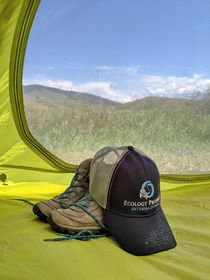
Yellowstone
Wildlife Ecology
HIGHLIGHTS
-
Survey wildlife from bison to wolves
-
Raft the rapids of the Yellowstone River
-
Explore Yellowstone's one-of-a-kind ecosystem
ITINERARY
Travel to the Greater Yellowstone Ecosystem for an unforgettable student travel program focused on conservation ecology and wildlife management. Through service work and data collection with scientists from Yellowstone National Park and the U.S. Forest Service, you’ll gain first-hand experience with real-world conservation and research methods. When you’re not busy in the field, you’ll have a chance to explore geothermal features, raft the Yellowstone River, and gain practical camping skills. There is an option to earn 3 undergraduate credits through the University of Montana (separate registration process and tuition fees apply).
EPI’s Individual Student Travel Programs are designed for middle school, high school, and college students. You’ll join a group of other passionate students from all over the country, assist with real wildlife conservation projects, and propel your career path forward with confidence and a new sense of independence.
TUITION & DATES
Your Fieldwork
Work with bison:
America's mammal
In Yellowstone, bison move through the landscape with the change of the seasons. Work with park researchers to collect vegetation samples at specified sample sites and gather information about bison presence. Data will help the park understand how bison interact with their environment.
REQUEST INFORMATION

Partner Profile
Rick Wallen has been the chief wildlife biologist for the bison program at Yellowstone National Park since 2002. Prior to his position in Yellowstone, Wallen studied a number of different ungulate species in the National Park around the American west. Now a resident of Gardiner, Montana, the only town in the world that peacefully cohabits with wild bison, he sees the critical role that educational programs play in fostering appreciation and stewardship of wildlife.










